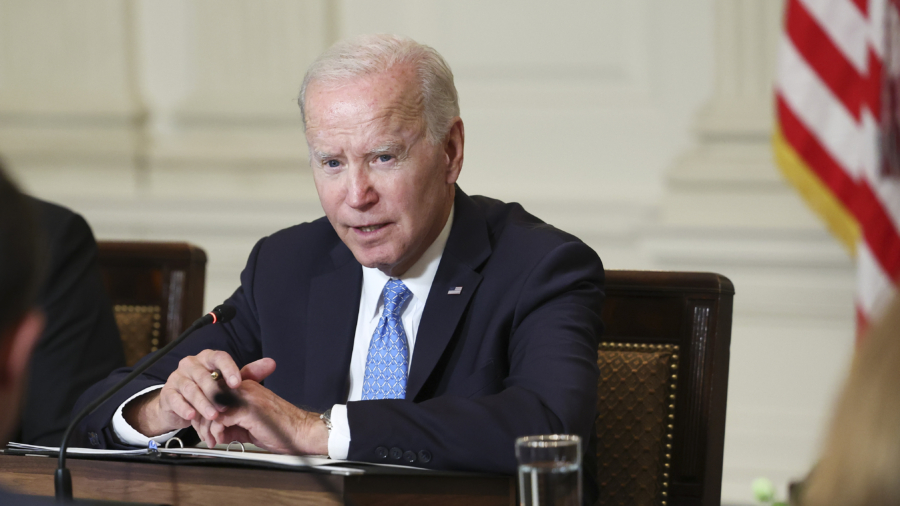The Biden administration on Sept. 29 released a strategic framework for ties with Pacific Island nations, the first document of its kind. The move came amid heightened actions by the Chinese regime to draw the region under its influence.
The Pacific Partnership Strategy (pdf) would help to increase engagement and prosperity in the region, as well as undergirding national security interests, the White House said in a statement.
“The United States is a Pacific nation, with its homeland including the Commonwealth of the Northern Mariana Islands, Guam, American Samoa, and Hawai’i,” the document states.
“U.S. prosperity and security depend on the Pacific region remaining free and open.”
The strategy notes the increasing activity of the Chinese regime in the region.
“[P]ressure and economic coercion by the People’s Republic of China, … risks undermining the peace, prosperity, and security of the region, and by extension, of the United States,” it states.
Notably, the blueprint frames the Pacific nations as a “sub-region of the Indo-Pacific,” likely marking it as falling under the auspices of the previously released Indo-Pacific Strategy. That strategy outlined that the United States will focus on developing allies and partnerships to ensure the region remains free and open, prosperous, secure, and resilient in the face of increasing global competition.
However, the new strategic framework underscores that it isn’t focused on any adversary but seeks to positively develop the region by shoring up alliances and increasing trade and cooperation.
“We have an interest in maintaining free, open, and peaceful waterways in the Pacific in which the rights to the freedom of navigation and overflight are recognized and respected, people are prioritized, trade flows are unimpeded, and the environment is protected,” the document states.
“We also have an interest in ensuring that growing geopolitical competition does not undermine the sovereignty and security of the Pacific Islands, of the United States, or of our allies and partners.”
The administration plans to boost U.S. commitments in the region, forge economic relations, build capacity to support local powers, bolster regionalism, and work with partners to develop and protect security and sovereignty for the Pacific Islands, according to the document.
The release of the plan occurred on the second and final day of the initial U.S.-Pacific Island Summit in Washington, during which the White House affirmed that it would dedicate more than $810 million in expanded programs to aid the island nations. The U.S. has provided more than $1.5 billion to support the Pacific Islands over the past decade, according to a senior administration official.
Washington’s diplomatic initiative comes amid increased efforts by the Chinese regime to increase its economic and security ties with Pacific Island nations. Most notably, Beijing signed a security pact with the Solomon Islands in April, triggering pushback by the United States and its allies in the region over China’s increasing military footprint in the region.
The new strategy also set the United States’ plans to formally recognize the Cook Islands and Niue as sovereign nations, provide $600 million for securing regional tuna stocks, open a new U.S. Agency for International Development (USAID) regional mission, $3 million in Coast Guard training and capacity building, and increased law enforcement cybersecurity cooperation.
“In this decisive decade, we will draw ourselves closer to the Pacific Islands, individually and regionally; coordinate more efficiently with our allies and partners; and create opportunities and work together to address threats to the region—the climate crisis most of all,” the document states.
From The Epoch Times

